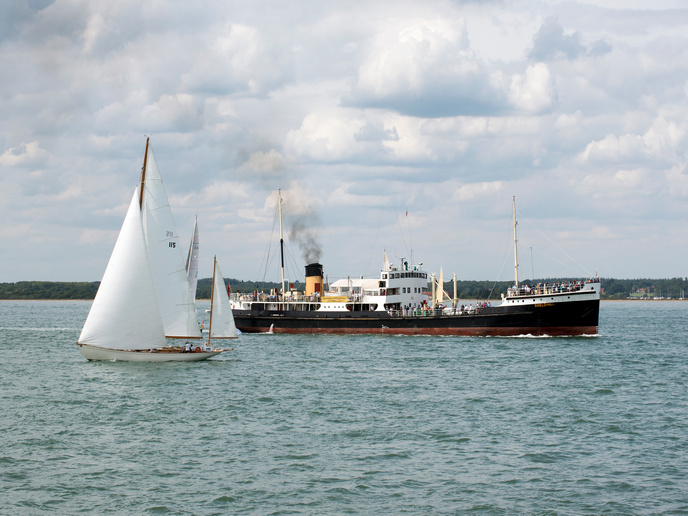From sails to steam
From trade to discovery, conflict to leisure, the maritime sector has had a huge impact on society – an impact that stretches back to the earliest civilisations and continues to the cargo ships of today. Yet despite its important role in history, we know surprisingly little about the seafaring past of the Mediterranean and Black Sea. That is until now. Thanks to the work of the EU-funded SeaLiT project, everyone can now discover the fascinating period of history when maritime transitioned from sail to steam in the interconnected inner seas. “This project explores the transition from sail to steam navigation and its effects on seafaring populations in the Mediterranean and Black Sea between the 1850s and the 1920s,” says Apostolos Delis, a researcher at Greece’s Centre of Maritime History at the FORTH Institute for Mediterranean Studies and SeaLiT project coordinator. The European Research Council supported project focused on the effects this technological transition had on seafaring people and maritime communities, whose way of life was drastically affected by the advent of steam. Specifically, it looks at steam’s impact on: the maritime labour market; the relationship between shipowner, captain and crew; life on board the ship and ashore; and businesses, communities, trade and navigation.
Books and maps
But this wasn’t just another academic research project. The goal was to make this history accessible to as many people as possible, including other researchers, maritime enthusiasts, even school children. “From the start, we wanted to make sure that our findings reached the general public, whether that happens via magazine and newspaper articles, TV interviews, or through the creation of a board game,” remarks Delis. Before we get to the board game, let’s start with the books and maps. A capstone of the project is the publishing of the volume ‘Mediterranean Seafarers in Transition; Maritime Labour, Communities, Shipping and the Challenges of Industrialization 1850s – 1920s’. Consisting of 17 chapters authored by 21 different researchers, this comprehensive tome takes a deep dive into such topics as maritime labour and communities, and cargo and passenger shipping. “This book is an important contribution to many aspects of Mediterranean maritime history and includes a wide range of interesting case studies and insightful research,” notes Delis. The book is supported by the SeaLiT ResearchSpace, an online database of curated maritime history, and two interactive digital maps. The Ship Voyages map uses actual ship logbooks to visualise the navigation of merchant ships, while the Ship Operation Services map looks at the various services that were essential to the shipping industry.
And an action-packed board game too
Then there’s that board game we mentioned. “This educational game sees players competing as either a sailing ship or steamship, exploring the world of maritime shipping and navigating such perils of the trade as wars, epidemics, repairs and changing freight rates,” explains Delis. The game is meant to serve as a tool for teaching maritime and economic history and Mediterranean and Black Sea history, as well as the history of technology and trade. “Thanks to the game’s fast pace and challenging scenarios, it also cultivates problem-solving and decision-making – all while having fun sailing the high seas,” adds Delis. While students and adults alike are having fun discovering maritime history, Delis is already working on his next research project on the history of navigation.
Keywords
SeaLiT, sailing, sails, steam, Mediterranean, Black Sea, maritime, ship, shipping

